6. Dogtooth
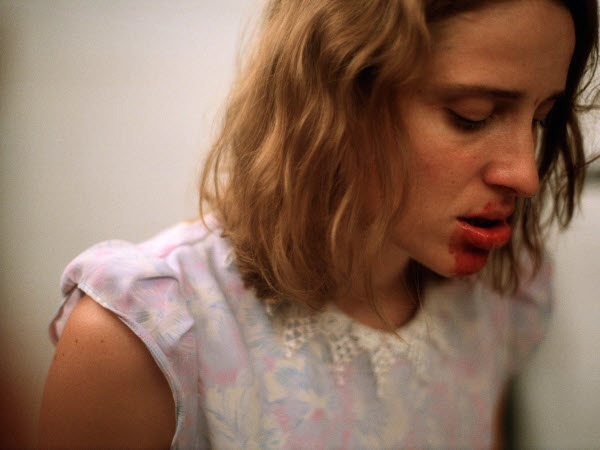
Yorgos’ Lanthimos “Dogtooth” single-handedly put modern Greek cinema on the map as well as created a wave of de-dramatization with its unique style, which was copied several times since. Its influence was truly tremendous for Greek cinema and for its worldwide audience as well. And as you probably guessed, the saturated beauty and dark comedy bombshell that is “Dogtooth,” just like its predecessors in this list, is not easy to consume.
Two overprotective parents (Christos Stergioglou and Michelle Valley) keep their three children (Mary Tsoni, Angeliki Papoulia, Hristos Passalis) isolated from the outside world and fenced away from any external influence. The children listen to homemade tapes recorded by their parents, which give their own definitions of words.
For this family “vagina” means light and “keyboard” means “vagina.” Higher numbers indicate smaller values, and vice versa. The most dangerous animal is a cat and Frank Sinatra songs are translated by the father as “Mum loves you, Dad loves you.” The narrative provided by the parents to their adolescent offspring to keep them secluded and contactless is that “children are only ready to leave home
when their dogtooth falls.”
Needless to say that the family dynamic in “Dogtooth” is perverse, troublesome and quickly becomes dysfunctional as well, whence the sexual urges and concurring maturity emerge in the three children. The physical “captivity” of the three children is less of an ordeal compared to their mental captivity, where the only concepts and constructs to grasp are those imposed by the family.
Similarly to George Orwell’s “1984,” their evident repression cannot even be expressed due to shortage of their vocabulary. Despite their physical and mental hostage situation, some agency does arise, the sort of agency which denotes that family too is a system of potential oppression and like every systemic oppression, it shall be overthrown.
7. Jeanne Dielman, 23, Quai du Commerce, 1080 Bruxelles
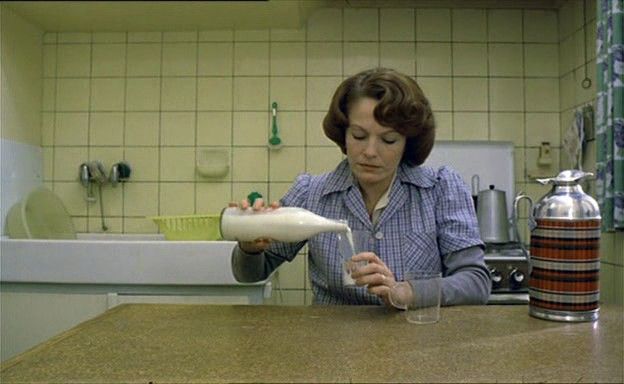
“Jeanne Dielman, 23, Quai du Commerce, 1080 Bruxelles” is a cornerstone film for arthouse cinema. And it’s not hard to enjoy for the typical and aforementioned reasons: disturbing content, abuse of power, and inappropriate and weird sexual interactions. It is just that it is so incredibly slow, lengthy and frankly boring that one may not even be able to bring themselves to finish watching. But well, this brings home the message in perfect fashion.
Jeanne Dielman (Delphine Seyrig) is a Belgian housewife living and receiving letters in 23, Quai du Commerce, 1080 Bruxelles, as the title suggests. She is a widow and a mother. Her day-to-day routine is relentlessly identical: cooking, cleaning, sex with male clients for extra cash, and taking care of her son (Jan Decorte). Every chore and errand is performed and filmed in real-life time, for three consecutive days, leading to 201 minutes of film, 201 minutes of domestic duties. This nerve-wrecking narration comes to a climax on the third day, where an unpredictable action strangely evokes a cathartic reaction in the viewer.
Chantal Akerman’s direction and depiction of the life of the so-called “average housewife” is one of the most important films in feminist cinema. Getting through the film requires Job’s patience, but that is exactly what we are called to do: bear with Jeanne, live through her routine to become immersed in its mundane nature and co-rebell. Sometimes by leaving the cinema, sometimes by pushing through.
8. Melancholia
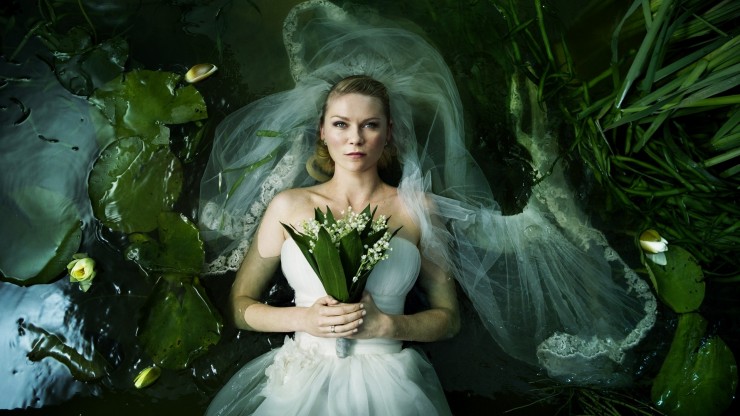
Any Lars von Trier film that has been positively received could make this list. However, “Melancholia” is probably one of his most visually impressive and well- acted films that has achieved mainstream breakthrough. Why is it hard to enjoy? Because it is about a planet ending life on Earth, ending Earth itself. Combined with von Trier’s typical themes of existential trial and mental sanity, “Melancholia” is self-defined and evokes its titular mood.
An introductory sequence of still images opens the film which constitutes our first contact with the characters and themes. Justine (Kirsten Dunst) and Michael (Alexander Skarsgard) are having their wedding reception at the estate of Justine’s sister Claire (Charlotte Gainsbourg). Meanwhile, a rogue planet, Melancholia, has entered the solar system and is heading towards the earth.
The prototypical von Trier condemnation is spread throughout every character and every scenic depiction of the eminent end. Dunst’s portrayal of extreme depression is horrific and unforgettable. “Melancholia” does deserve a try, if not for the originality of its theme, for the innovation in narrative, striking performances and beautiful cinematography.
9. The Seventh Seal
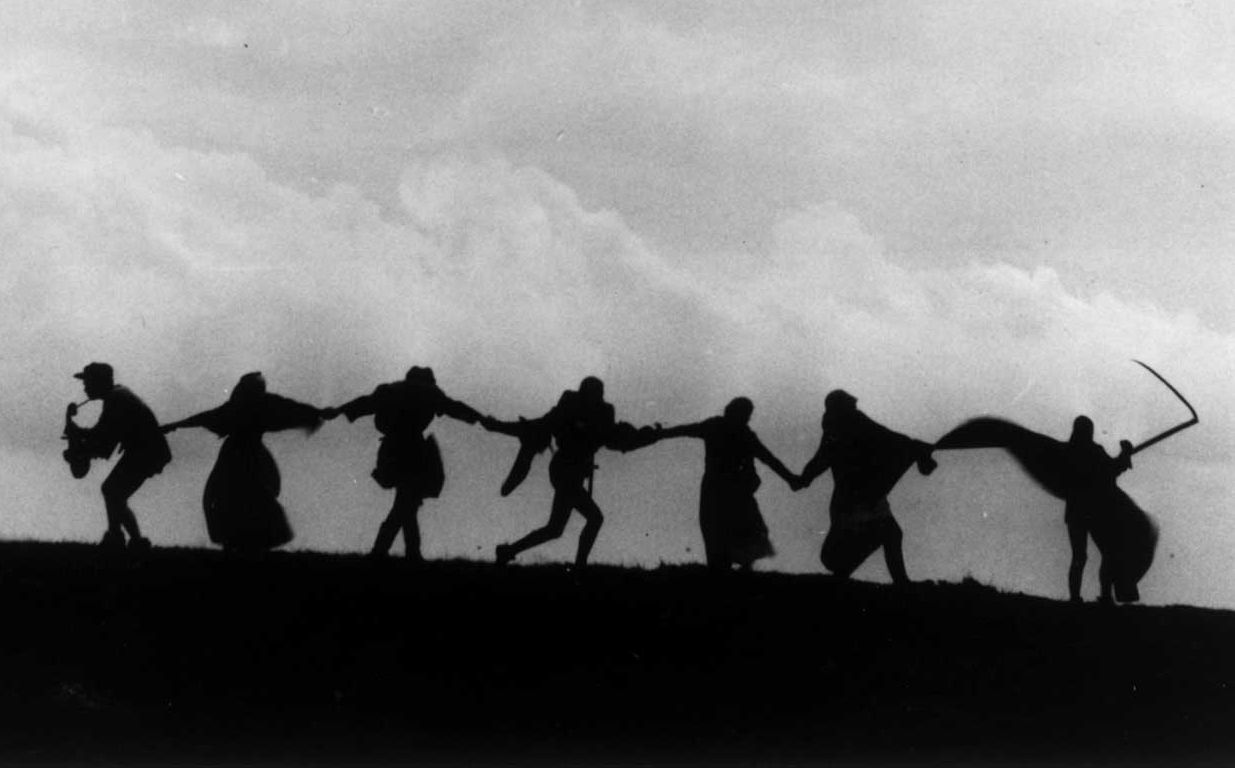
Ingmar Bergman’s 1957 Swedish epic is well established as a world cinema classic.
In medieval Sweden, during the time of the Black Death, a knight (Antonius Block) makes his way to his ravaged homeland. Eventually, and after a series of encounters he confronts the embodiment of death (Bengt Ekerot), with whom he plays a round of chess.
What conveys the fright in Bergman’s classic is the wasteland surrounding the two characters: silent and grim. The film is allegorical and is not to be taken as a valid historical source. The major themes that are commonly displayed throughout Bergman’s filmography also dominate “The Seventh Seal.” The very brief and simple plot only serves for the major and taunting themes to unfold.
“The Seventh Seal” is also one to about talk for hours, due to its heavy existential intonations and philosophical, religious themes, but the slow pace and effort that needs to be put by the viewer may discourage some from watching. However, the film does use humor to make its points, so there is something close to a comic relief feign.
The whole construction and inherent nature of “The Seventh Seal” is that it is art and not entertainment. However, it can be enjoyed and even if not, it is rewarding stimulation.
10. White God
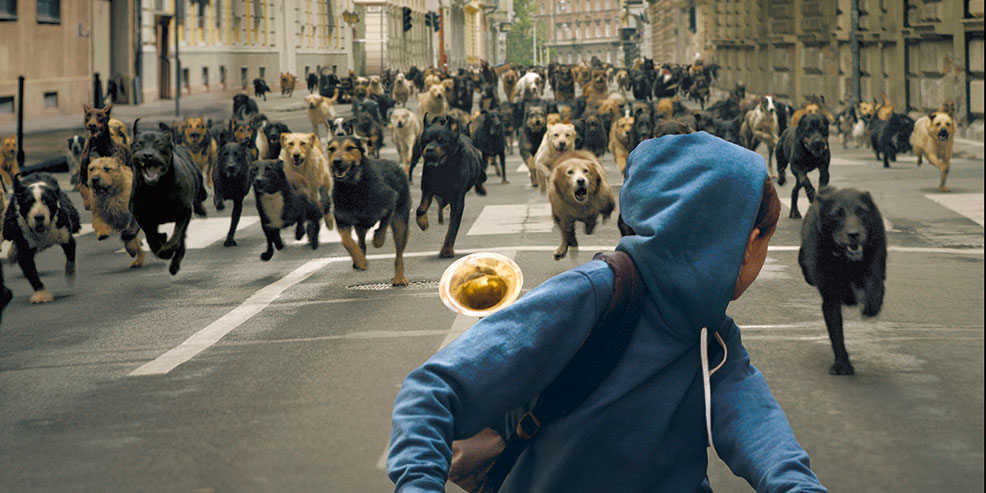
There is not enough one can say about “White God.” If anything, the film really is an experience. One to induce a linear increase in your interest while you watch, and its content will occupy your thoughts for some time after. Its power in creating the feelings of pain, suffering, disgust and anger is monumental. “White God” is so aggressive and emotionally charged that it might stay with you for life.
Young Lili (Zsofia Psotta) is forced to give up her dog Hagen. The reason for this is his “mixed-breed” status, which has recently been deemed “unfit” by the state. Therefore, all mixed-breed canines are to be seized from their owners and be kept in governmental camps. Lili is determined to keep Hagen but after an argument with her father (Sándor Zsótér), he abandons Hagen in a highway in the outskirts of the city. Devastated Lili desperately tries to find Hagen and so does he. To get back to Lili he embarks on a long journey of maltreatment and abuse, leading to an eventual rebellion.
Kornél Mundruczó’s directing is captivating from the first moment of film. You can tell that there is something ominous in the atmosphere and you try to make inferences about how things are going to unfold. But truthfully, one cannot predict or be prepared for what is about to go down. And the fascinating thing about “White God” is that it works on any level you decide to interpret it.
Take it as a story of love and companionship between a girl and her dog, or as a metaphor for the violent yet just rebellion that can erupt due to oppression – which is what Mundruczó is actually trying to show – or a tale about animal cruelty. The same story and narration works and does justice to all of these levels.
Although a haunting watch, “White God” is so rich in substance and matter and so cathartic that ends up being a great way to detox the brain.